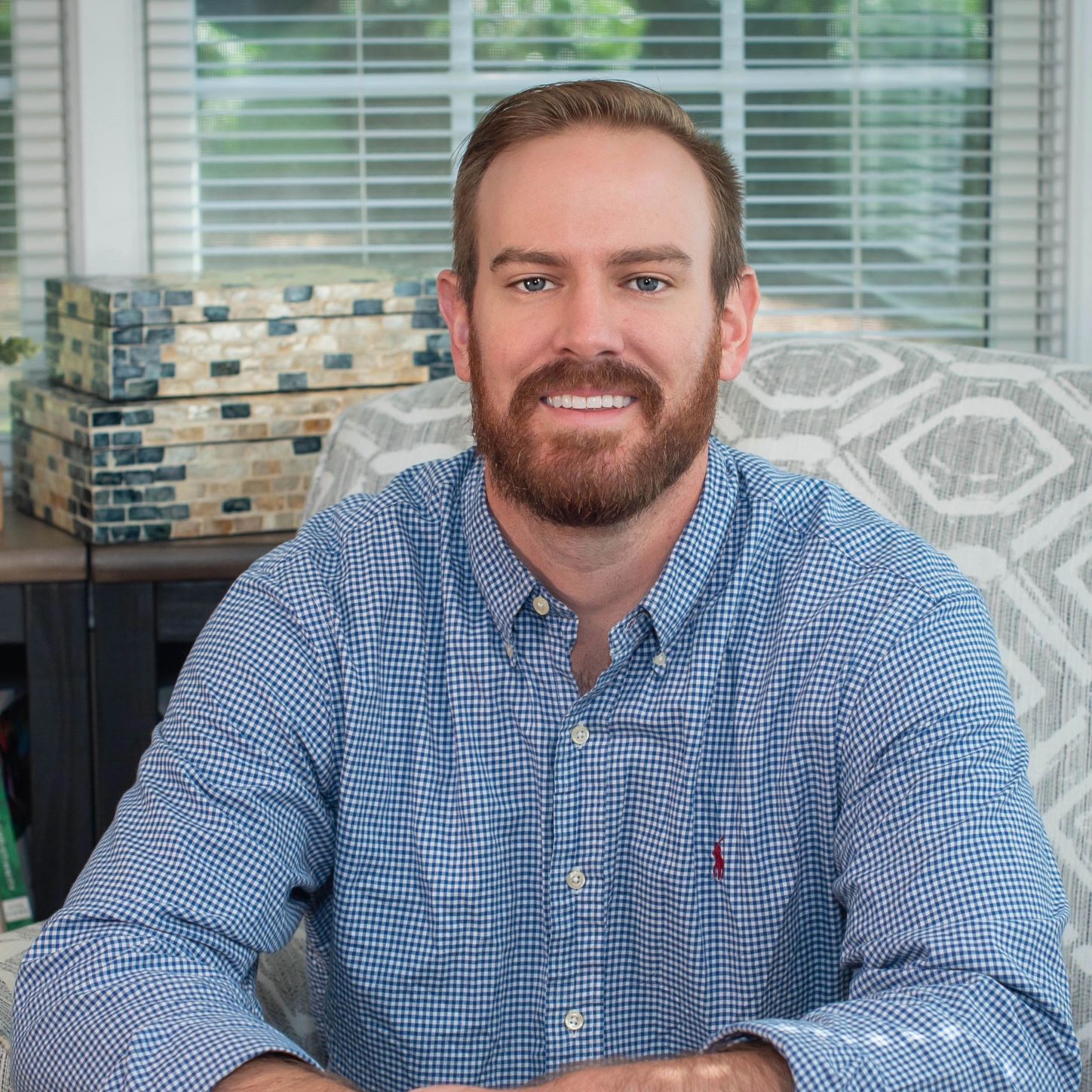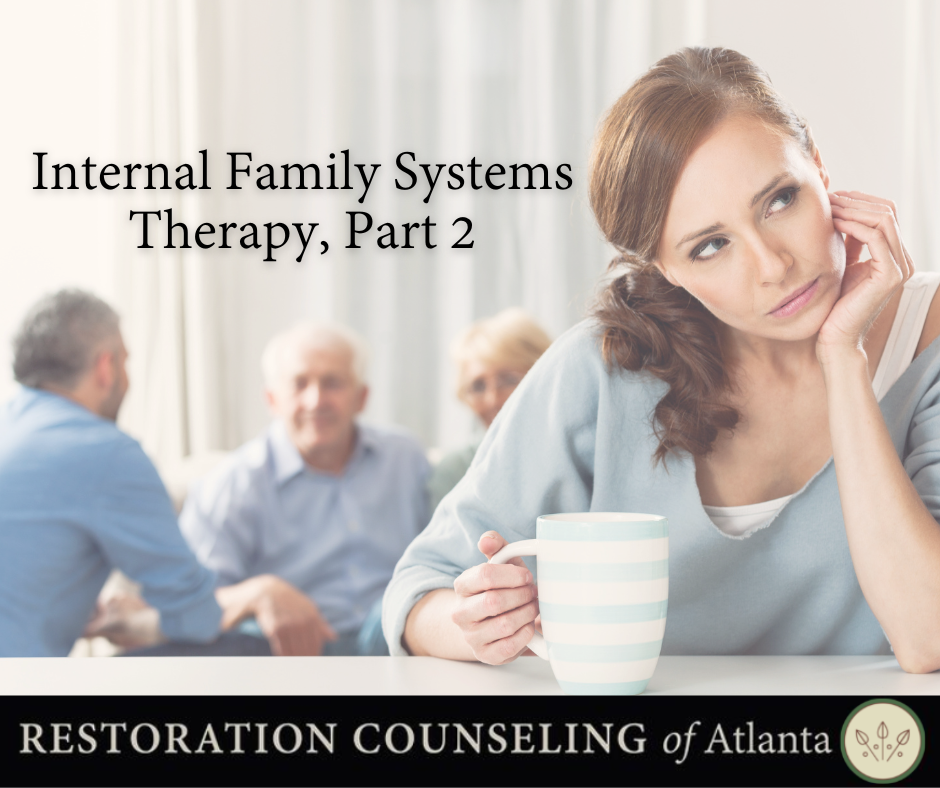Part 1 of this article series discussed the difference between being parts-led vs self-led. We will now learn more about being self-led and the goals of Internal Family Systems Therapy.
The Goals of Our Internal Systems:
- To achieve balance, harmony, and wholeness;
- To liberate parts from their extreme roles;
- To restore trust and leadership within yourself through your connection to Self (Holy Spirit)
- To experience God’s unconditional love in all aspects of our lives, in others, and in the world around us.
Rules Within Our Internal Systems:
- We cannot and do not want to get rid of parts. Instead, we want to help them unburden so they can return to their non-extreme roles —“Often, when these wounded parts unburden (‘find rest for their souls’), they bring joy, playfulness, tenderness, or spontaneity to our lives. They can also increase our capacity for genuine friendships, for experiencing and creating art, for soulfulness…that explains why many of us who have wounded and still burdened exiles struggle to play, to be carefree, or to let people in to see who we really are”.[10]
- All parts can carry burdens.
- There are no bad parts; there are good parts stuck in bad roles. In other words, not all behaviors are good, but all parts are. Your pain, your fear, and your anxiety are all good. They do not feel good, but they communicate what is wrong or where you may be misinterpreting or stuck in the past. IFS encourages you to always welcome your parts.
- Our personhood is multi-faceted, just like the reflection of God is triune.
- Everyone naturally has a self or is a piece of God’s reflection (now, whether people want to attribute their image back to God is their choice)
Self Leading Self
Emerson said, “And what is a weed? A plant whose virtues have not been discovered.” When our parts seem like weeds to be pulled, we haven’t taken the time to learn their beauty and bring them to Jesus to see what He says about them. Throughout childhood, we experience varying intensities of imperfections, whether rejection, abandonment, betrayal, or humiliation. All of these hurtful experiences lead us to lose trust and alignment with our true self’s innate, internal leadership.[11] Most importantly, we lose faith and alignment with the perfect leadership of the Holy Spirit in us.
Before going further, Adam and Eve’s initial sin, as well as that of most therapies and self-help books, is the inherent, dangerous temptation of “you can heal yourself.” Therefore, you don’t need God “because you are god”. A caution of self-leadership in the IFS model is that just because you experience love within yourself doesn’t mean it purely comes from you but from God. If loving leadership ends with being in our “self” and not pointing back to God(John 15:5), the temptation grows to do it on our own.
Yet, God is inviting us as we see the goodness of our image to point it back to Him as the creator of goodness and love and, as Christians, His Spirit bearing fruit within us (Psalms 34:8). IFS’s term “self” may be interchangeable with “spirit,” “intuition,” “gut-core,” or “heart.” And when I am referencing self, it is with the assumption of being connected to the Self (Holy Spirit).
Different spiritual and religious groups have different names for Self-love. Our self is innate and at the core of every one of us. For Christians, the self is our Imago Dei or God-Image; Hindus call it Atman; Taoists call it Toa or Chi; Sufis the Beloved; Buddhists call it Buddha Nature. Put simply, it is our unique spirit, where love flows from our connection with our Triune God.
When our parts work against each other and on two sides of the canoe, Self is the captain in the middle who helps the parts work as a team and prevents the ship from sinking. It is the glue for our broken parts. The unifying leader may initially have little respect and trust for parts. Yet, due to the intrinsic integrity of the Self, it is inherently worthy of trust.
“The Self will not lie or be sneaky or evasive. . . . The Self can be firm without being punitive or righteous. . . . it is not critical.”[12] Parts may be gridlocked for people whose burdens are intense and not let you willingly access them. Your burdened parts may be doing their jobs so intensely and for so long that they have never trusted you or others. This is why many of us grow up not knowing who we are.
As William Wallace exclaimed, “Every man dies, not every man truly lives.” Most of us only live based on glimpses of who we are. It is like light coming into a dark room or heavy storms dissipating, allowing the light to shine. Eventually, as we bask in the light of Self and our self’s goodness and love, it becomes an evolving relationship where being with God and ourselves internally becomes more easily accessible, warmer, safer, peaceful, joyful, trusting, and secure. Parts can lose sight of who we are and who God is when they are consumed in fear. But, we can “find sun again and rest in the midst of the storms of life,” which is the paradox.
The Eight Cs
“When we are in our self, we naturally and fluidly experience what Dr. Schwartz calls the Eight ‘C’s’ ” or what I believe are variations of the fruits of the Spirit (Gal. 5:22-23, 1 Cor. 13):
- calmness like the “I” of the storm
- clarity, confidence similar to knowing we are an ocean and not a wave
- Non-judgmental curiosity (does not have interrogation behind it)
- clarity
- compassion
- courage
- creativity
- connectedness within yourself and with others
Every person has a self or a God-Image at their core. In a perfect world, it is surrounded by many unhindered parts that make up our unique personalities. One person might be created with a musical part, another might have a humorous part, and yet another might have a studious part. We all have lots of these unburdened parts.
When our internal experience perfectly functions, these parts are unhindered and fluid. By fluid, I mean they move into our immediate awareness when needed and move back out again when not.”[13] Therefore, when a part takes over, it is with permission from self rather than automatically. At certain times, I can be almost always in myself. At other times, I am severely triggered when my protectors flood me, and it feels as if there is no “I” in the center of the storm surge.
In conclusion, this may be overwhelming to conceptualize, so I invite you to get curious and write down what you have learned from our American culture, a family of origin, generational family patterns of relating rules to dealing with vulnerability, intimacy, and pain even if it’s a pain that feels like the size of a tiny glass shard.
I invite you to ask yourself the following questions to deepen your relationship with yourself and your God-given emotions. “Have you compartmentalized and exiled parts in order to be successful, accepted, and temporarily loved? What unconditional love did you need that you didn’t get? Are your parts trying to save you from something? What is your part afraid would happen if it didn’t perform the role it is in? What is your part’s projection onto God of who they think He is? How did that projection get wired into that part?”

Written by: Micah Mabe, MA MFT, APC
Roswell Location
micah@restorationcounselingatl.com, ext. 158
Micah offers services in-person at the Roswell office and virtually and can provide EMDR through an online platform. He enjoys working with individuals, couples, and families in various areas, including emotional dysregulation, anger management, anxiety, depression, life transitions, grief, pornography and sexual struggles, trauma, dissociation, relational disconnection, and more. He uses various approaches to counseling, such as EMDR, Experiential therapy, IFS, Narrative therapy, and EFT, to help clients find understanding, attunement, skills, and healing within themselves and with others.
References
Goulding, R. A., & Schwartz, R. C. (2002). The mosaic mind: Empowering the tormented selves of child abuse survivors. Oak Park, Illinois: Trailheads Publication.
Pastor, M., & Gauvain, J. (2020). Internal Family Systems: Level 1 Training Manual. Oak Park, IL: Trailhead Publications.
Riemersma, J. (2020). Altogether You: Experiencing personal and spiritual transformation with Internal Family Systems therapy. Marietta, GA: Pivotal Press.
Schwartz, R. C. (2001). Introduction to the Internal Family Systems Model. Oak Park, Illinois: Trailhead Publications.
Schwartz, R. C., & Sweezy, M. (2020). Internal family systems therapy. New York, NY: The Guilford Press.
Resources
[10] Riemersma, J. (2020), pg. 51.
[11] Schwartz, R. C. (2001), pg. 113.
[12] Goulding, R. A., & Schwartz, R. C. (2002), pp. 91-93.
[13] Riemersma, J. (2020), pg. 18.

